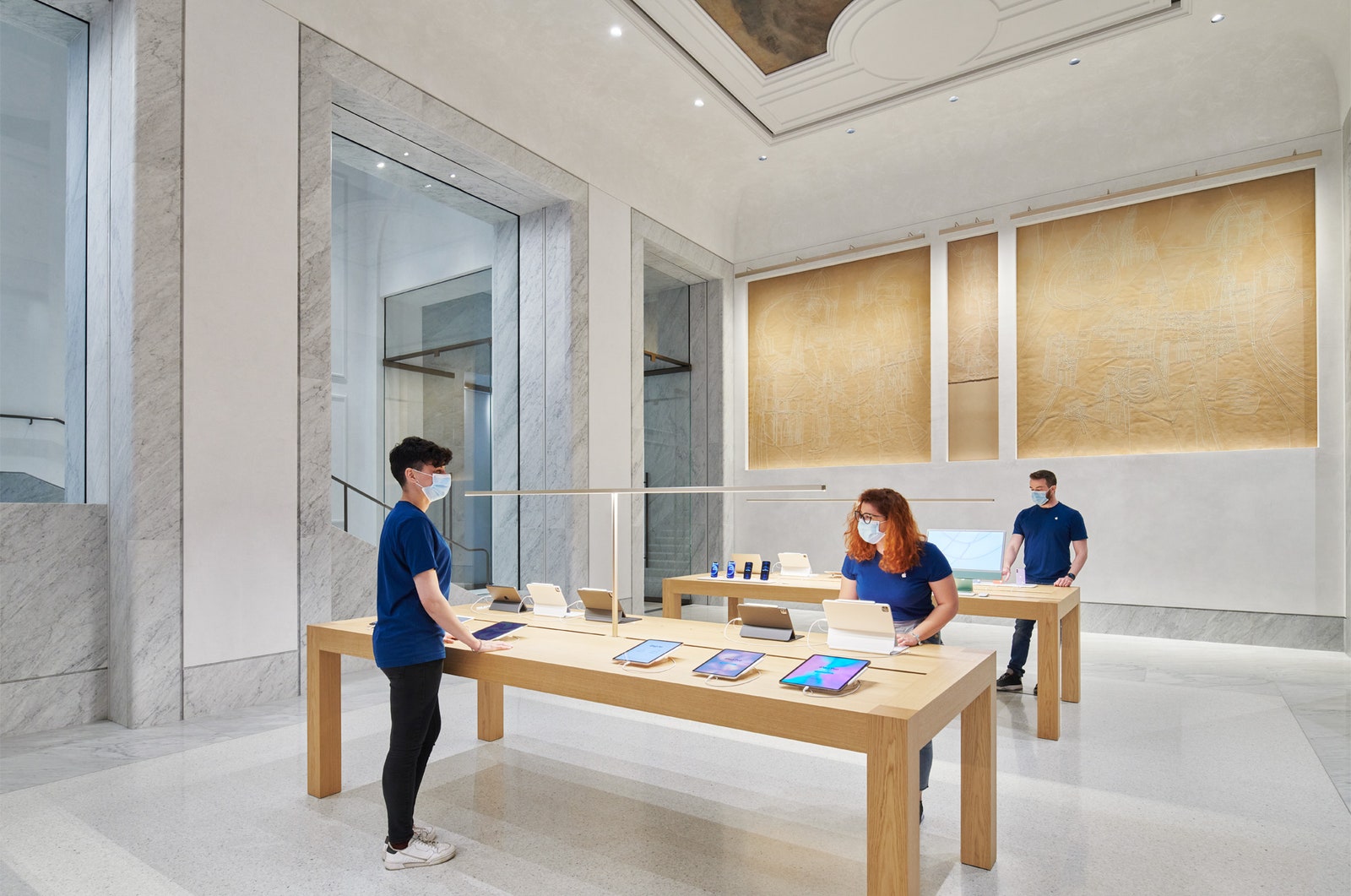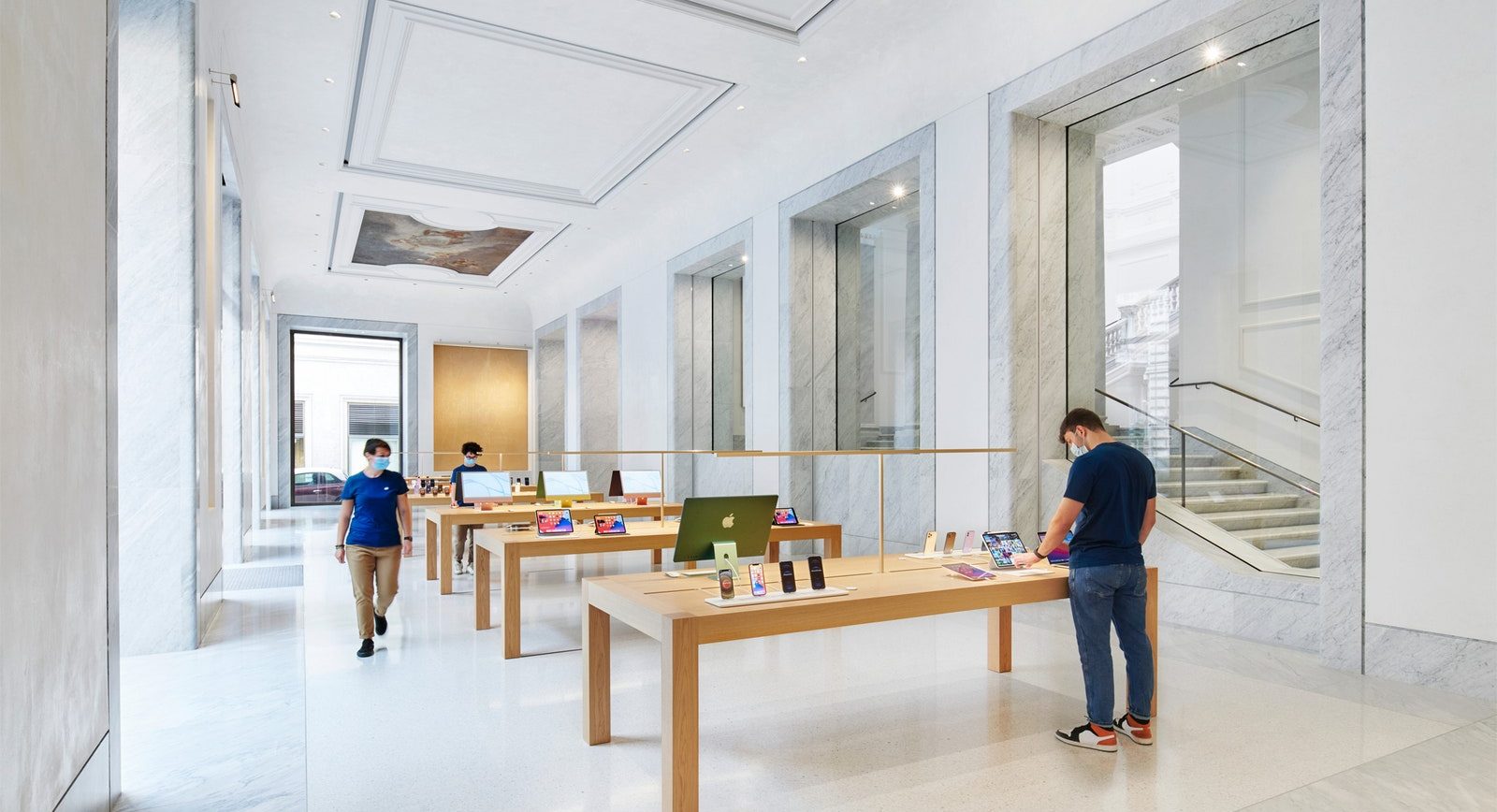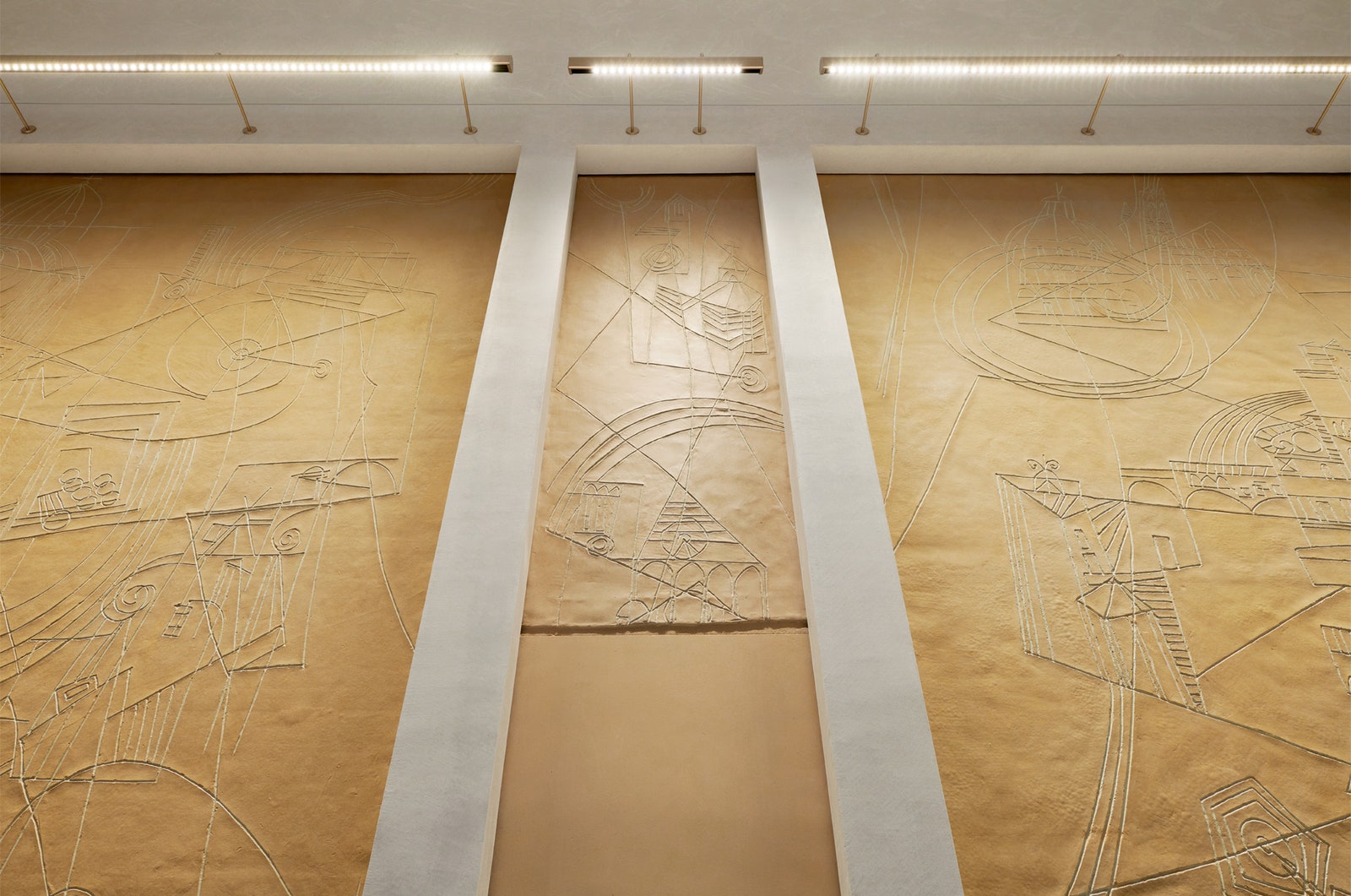Foster + Partners have restored and converted Palazzo Marignoli in Rome into an Apple Store. Situated on Via del Corso, it brings the historic Palazzo Marignoli back to life.
Inspired by its colorful past, the design reveals the building’s fascinating and multi-layered history by unveiling painted ceilings and frescoes from the 1890s juxtaposed with modern graffiti artworks from the 1950s. Celebrating the murals, hidden from view for decades, the new design creates a space where the city and history truly meet.
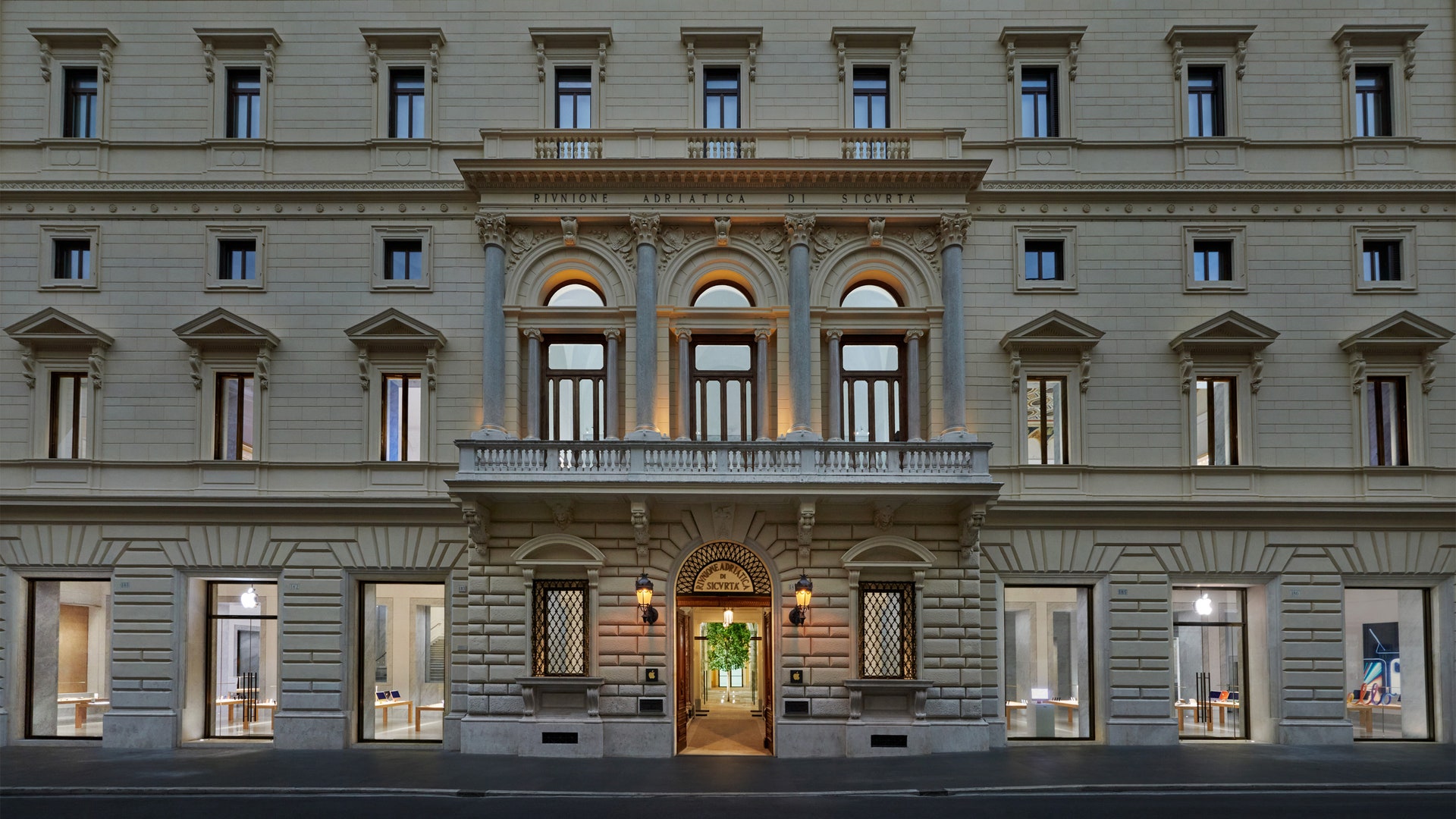
© Foster + Partners
Stefan Behling, Head of Studio, Foster + Partners, said: “The joy of the project was to peel back and rediscover the layers of history throughout the building and revealing its eclectic past, which ranges from the historic painted ceilings and the frescoes by Fabio Cipolla, both from the 1890s to the more recent graffiti artworks by Afro Basaldella. Palazzo Marignoli has seen so much throughout its history, and we feel truly privileged to be able to be part of its newest phase of life. Especially, as Rome is one of my favorite cities in the world.”
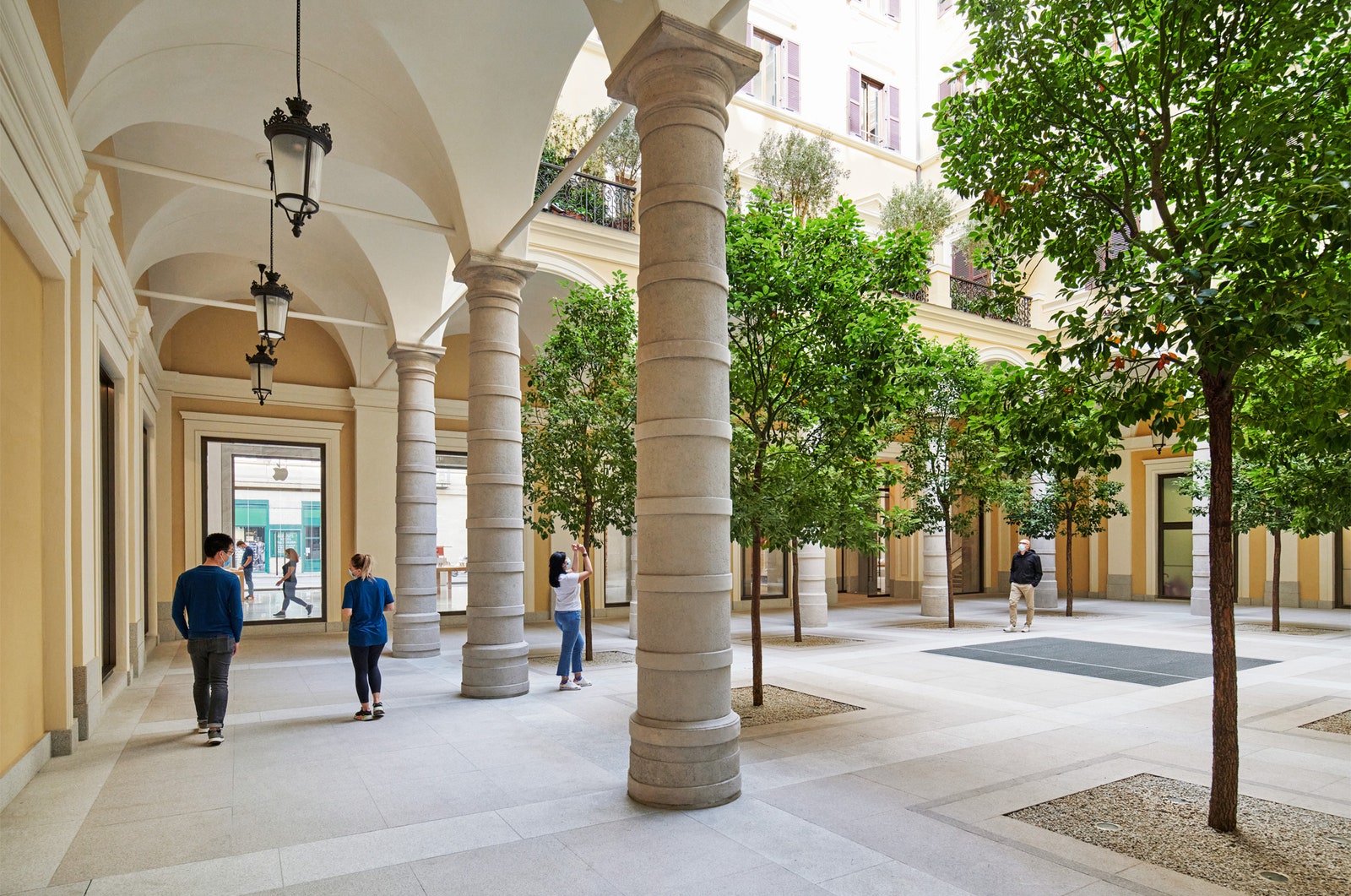
© Foster + Partners
Located on the site of a 16th-century convent ‘Delle Convertite,’ Palazzo Marignoli was designed by renowned architect Salvatore Bianchi in 1870 for Filippo Marignoli. A second addition by the architect Giulio Podesti in the 19th century added the main façade we see today. From 1890 to 1955, it housed the famous Caffè Aragno, a fashionable meeting place for writers, journalists, and political figures visiting from the neighboring parliament.
On the ground floor two large ceiling paintings called “Dawn” and “Dusk” by Fabio Cipolla and Ettore Ballerini respectively, have been carefully restored and integrated within the new store. One of the most exciting finds was the multiple graffiti panels created by the artist, Afro Basaldella – a contemporary of Picasso and one of Italy’s most important artists – depicting urban scenes from Italian cities.
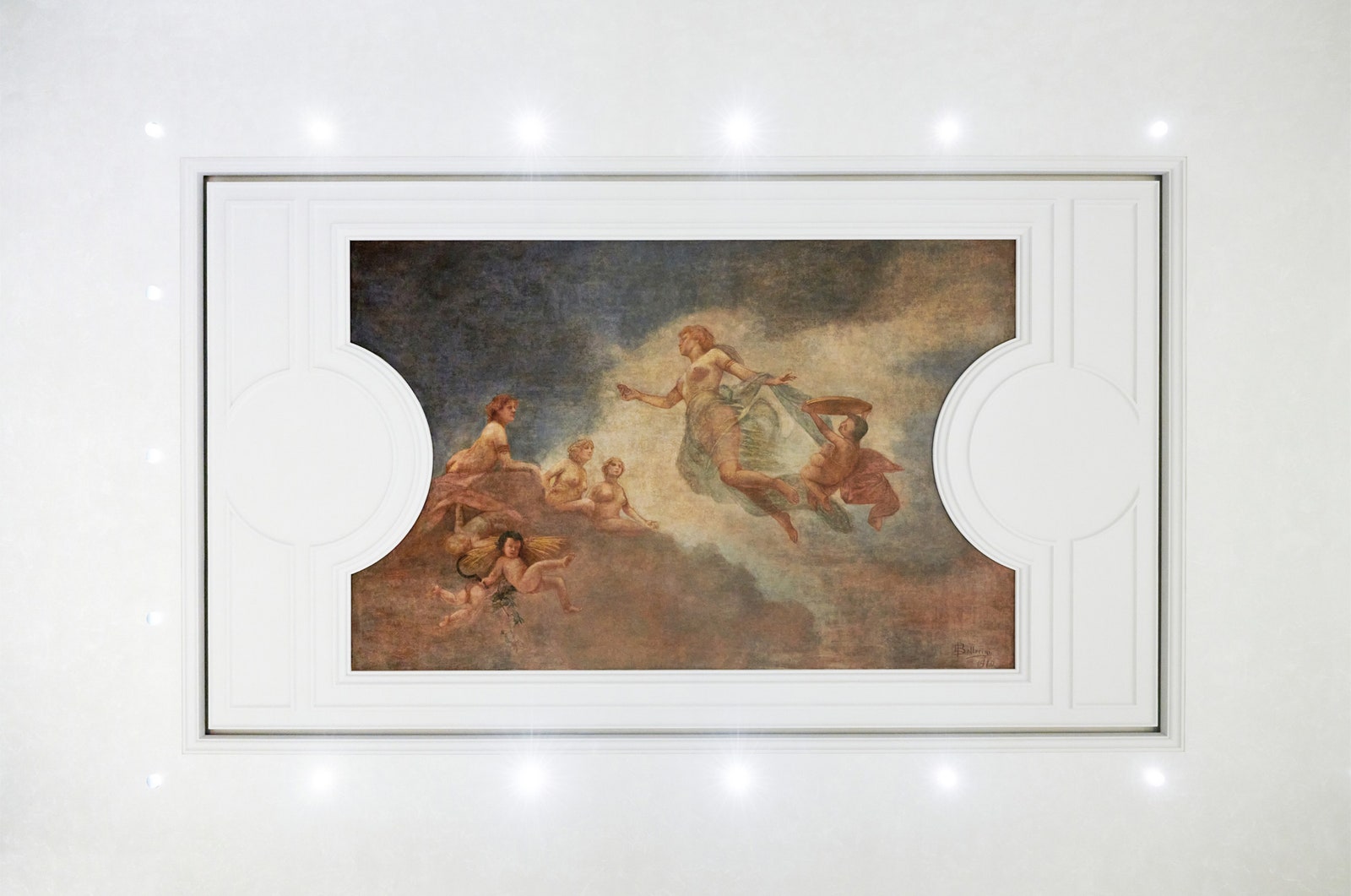
© Foster + Partners
The façade towards Via del Corso has also been carefully restored, its large windows allowing views into the store and towards a beautiful internal courtyard. Entry to the store is through a historic passage that leads to the courtyard flanked by two generous and striking spaces that celebrate the grandeur of the historic palazzo.
The arches and vaults of the central passage are lined with Carrara stone, carefully selected to match the existing marble and create dramatic vistas that lead you to the grand staircase. These spaces are an ideal setting for all customers to engage, explore, and be inspired by Apple’s latest products and the artwork that surrounds them.
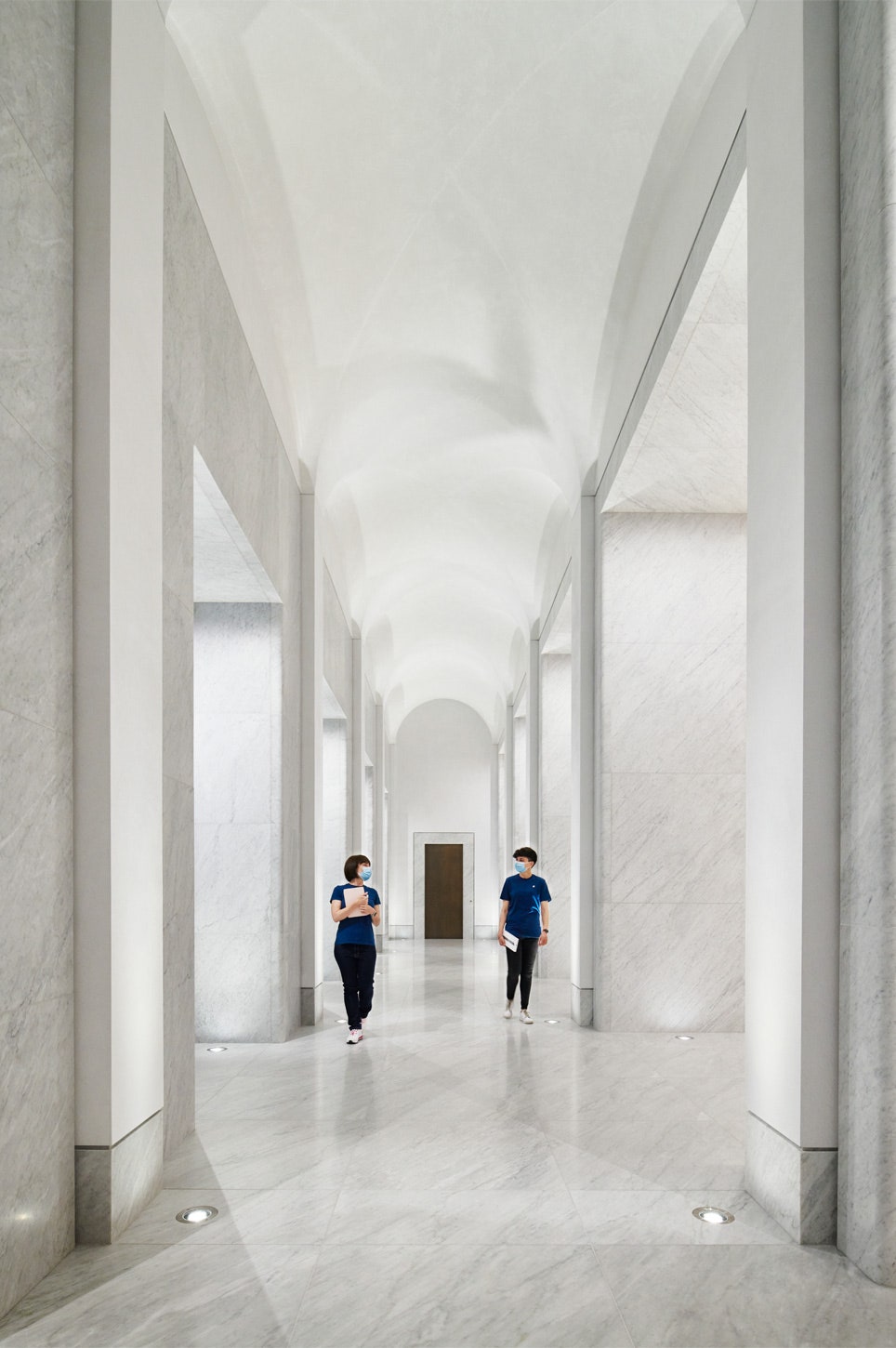
© Foster + Partners
The courtyard is a remnant of the 16th-century monastery and its garden, forming a peaceful green heart offering respite from the busy shopping street. It creates a calm focus for the entire building, visible from almost every corner of the store. The Camphora trees with their soft canopies offer dappled shade, creating a welcoming atmosphere for visitors, and leafy vistas up to the lush courtyard terrace on the piano nobile. The historic lanterns that were found on the site have been carefully restored by local specialists using high-efficiency LEDs that mimic traditional candlelight.
The monumental staircase built originally by Marignoli to access his residence on the first floor leads you to the piano nobile, meticulously restored with its original Carrara marble detailing. The original skylight which was built over during a previous refurbishment has been restored to flood the space with artificial light that matches the tone of natural daylight. The first floor houses the Apple Forum within the vaulted former ballroom. The Apple Forum is the focus for Today at Apple that features workshops and events.
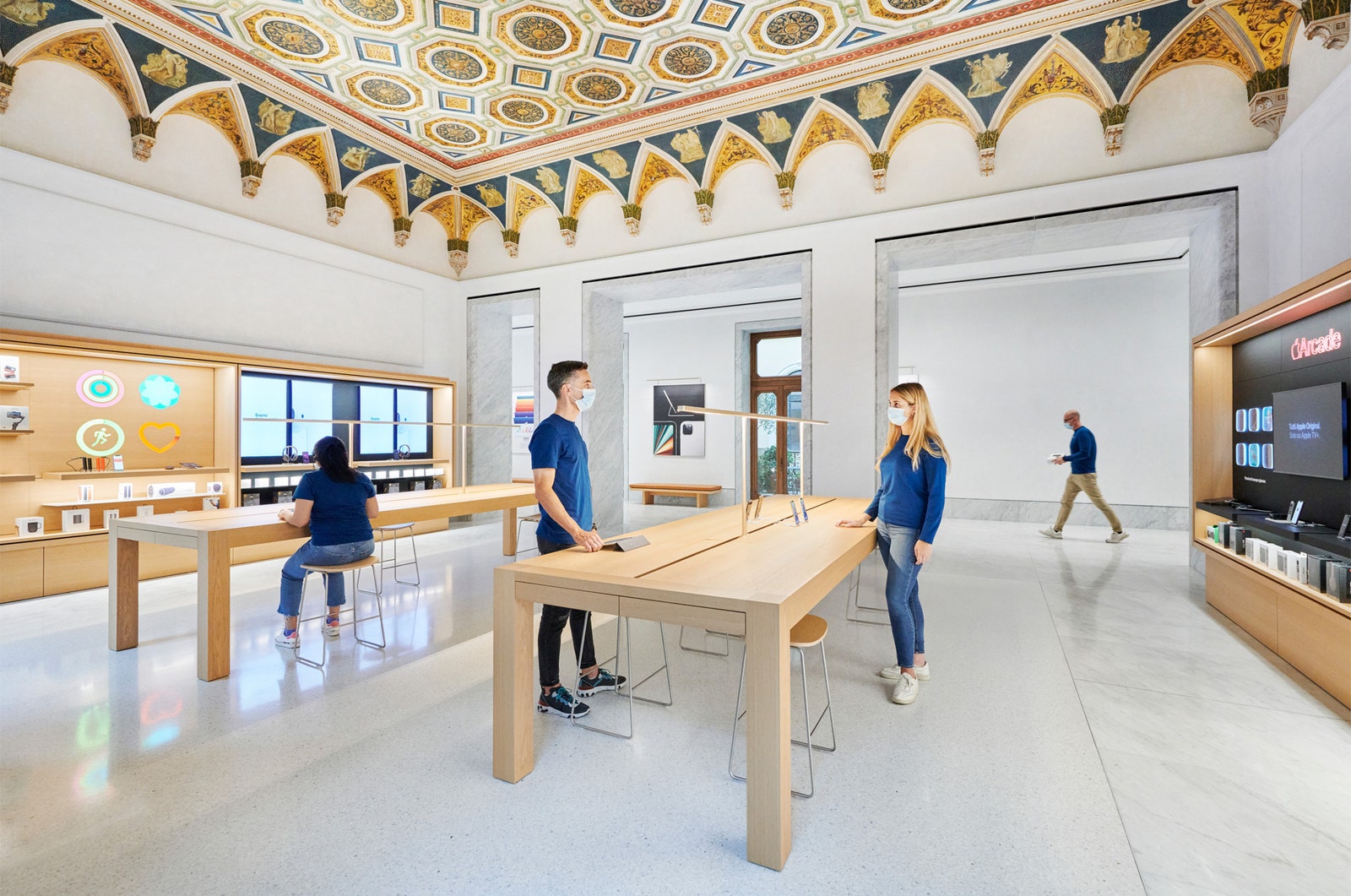
© Foster + Partners
The space adjacent to the grand ballroom – historically used as a games room – features an elaborate geometrically patterned, hand-painted ceiling, which was discovered during the course of construction. A dedicated team of conservators has worked thousands of hours to restore the ceiling to its former glory. Linking all these rooms is a gallery space that opens up onto a terrace. Inspired by historic Roman roof terraces, space is filled with fragrant jasmine vines and olive trees, looking down onto the canopy of trees in the courtyard, offering another delightful place for visitors to unwind and relax.
Apple Via del Corso is a celebration of the past and future and delicately articulates the different eras of history, creating a harmonious juxtaposition of old and new, and takes this building with so much history into its next phase of life.


